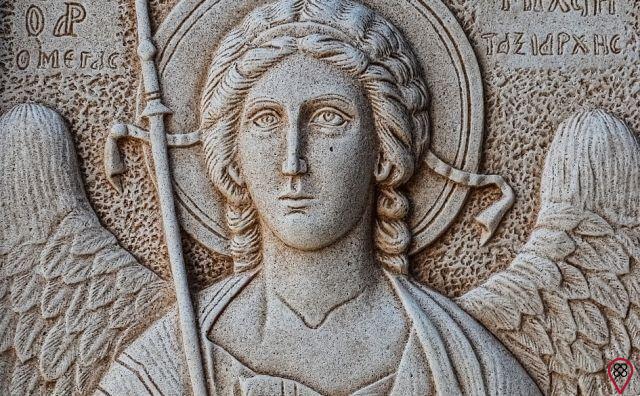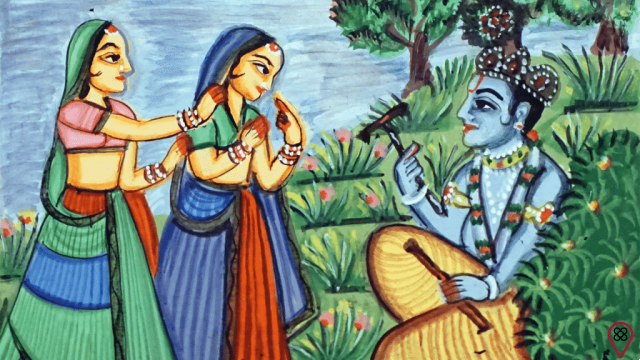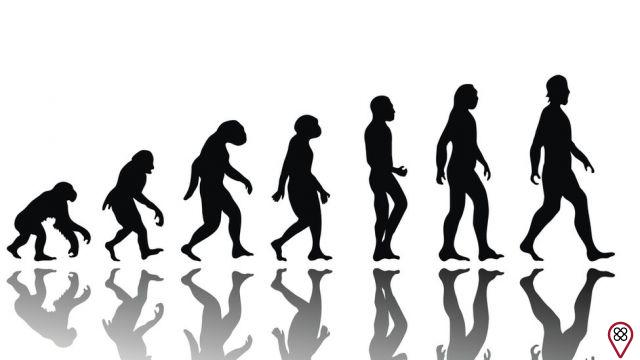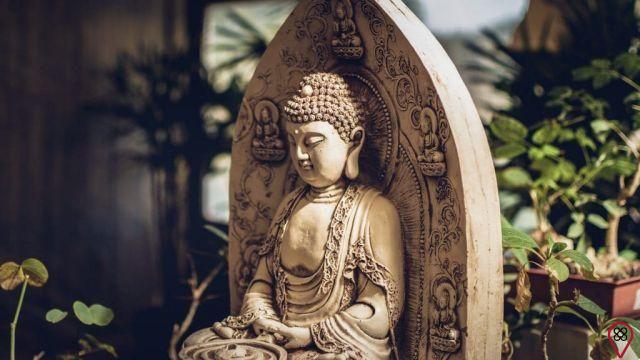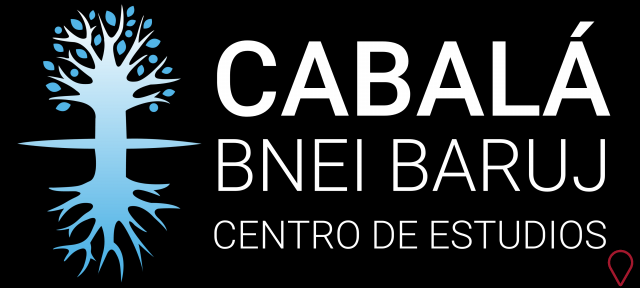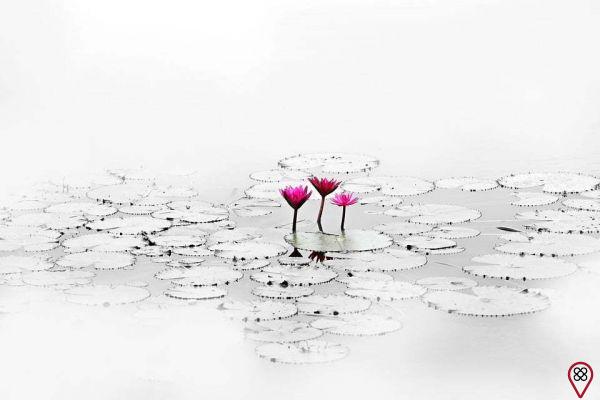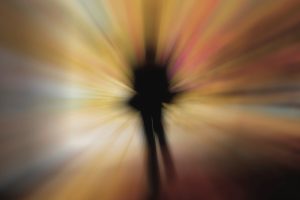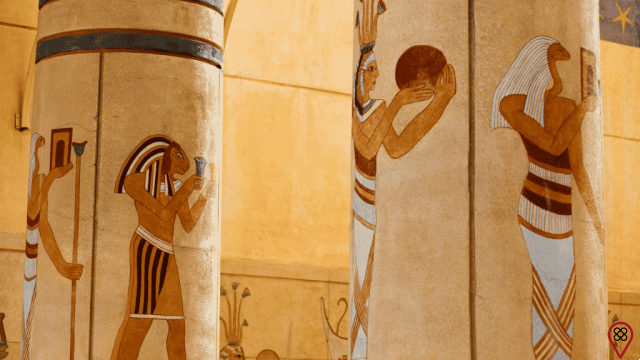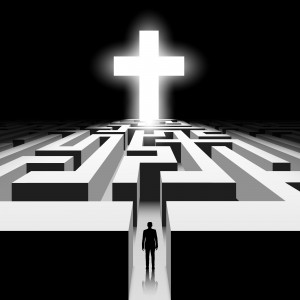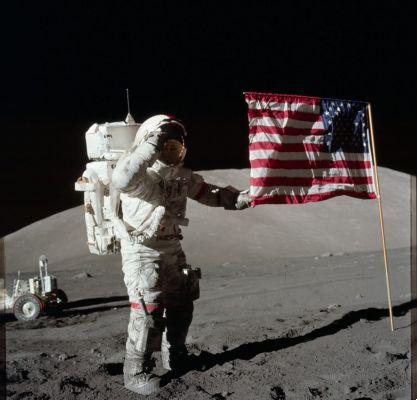Unpopular in Spain, Taoism is one of the most popular religions in the East, with at least 400 million believers. But how did this religion come about?
Taoism emerged from the ideas of a Chinese sage named Lao Tzu, who lived over 2.000 years ago. To understand what this religion is and how it was founded, as well as understanding who Lao Tzu was, read the following article.
Who was Lao Tzu?
Lao Tzu (Chinese, 老子), also translated as Lao Tse, Laotze or Lao Zi, was a Chinese intellectual. His name means old master. According to the versions most accepted by historians of Taoism, Lao Tzu died in the year 531 BC There are no sources that guarantee at what age he died and, consequently, when he was born.
Lao Tzu, according to traditional records, was considered an intellectual and was responsible for the archives of the royal court of the Zhou dynasty. It was there, in contact with what was most complete in terms of papyri, books and archives, that he came into contact with the ideas of the Chinese thinker Huangdi and with other sages of that time and the past. Little by little, he developed his next ideas and recruited disciples and followers of his thoughts.
The most accepted version tells that he was born in the village of Chu Jen, in the state of Chu, was married and had a son named Zong, who became a well-respected military man.
Some historians suppose that he was a contemporary of another Chinese thinker, perhaps the best known of them, Confucius, with whom he even met and debated philosophy.
There is another theory, however, that supposes that Lao Tzu did not exist and that it became, in fact, a pseudonym to gather the Chinese wisdom of the time. There are similar theories regarding other historical figures such as William Shakespeare and Homer. The most accepted, however, is that it did exist.
Tao Te Ching
The main wisdoms and the main teachings and thoughts of Lao Tzu were gathered in a book called “Tao Te Ching”. When he spoke and wrote about his ideas, Lao Tzu was talking about philosophy, not religion. Taoism, a religion based on his ideas, emerged after his death.

Among the ideas defended in the "Tao Te Ching" are to pay evil with good, always act honestly, follow life with balance and harmony, avoiding excesses and passions, flee as much as possible from desires and desires, since being human needs to be as natural and act as spontaneously as possible, in addition to the concept of duality (yin-yang), which defines that everything has its counterpart in the world, such as cold and heat, sadness and happiness, etc.
Wu Wei
One of the main concepts idealized by Lao Tzu is wu wei, often translated as non-action. According to his thinking, we should as much as possible turn to nature and act naturally, not motivated by wills, passions and desires. He claimed that technology brought a false sense of progress that little by little kept man away from contact with nature and with his own nature.
According to the wu wei, the human being needs, as much as possible, to turn to the tao, that is, to the path, to rectitude, to the harmony of life.
The religion
Despite being considered the founder of the Taoist religion, Lao Tzu did not talk about spirituality and deities, nor did he think of his teachings as a religion. For him, what was being discussed in his writings and said in his lectures to his disciples was philosophy.
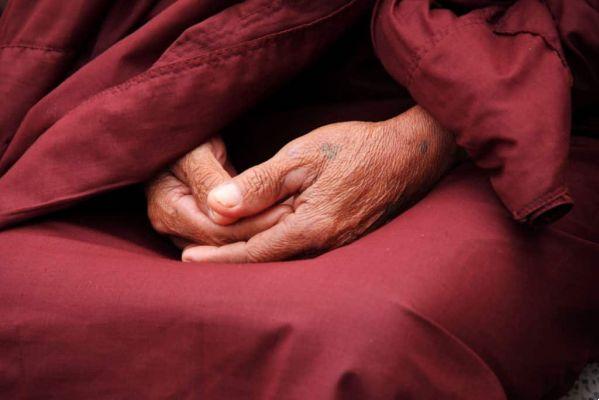
Taoism as a religion emerged nearly a thousand years later and its origin is uncertain. The religion brings together many traditional concepts from China, such as traditional Chinese medicine, Buddhist deities, and the Chinese philosophy of scholars such as Lao Tzu. Taoism is not, therefore, a direct consequence or a religion influenced solely by the teachings of Lao Tzu, but a gathering of several concepts that are part of Chinese culture and that have always characterized this people.
Lao Tzu and politics
Lao Tzu's work is very political. It is necessary to take into account that the time in which he lived was marked by dynasties that disputed the power of China among themselves, especially in wars, military conflicts and coups. Lao Tzu, being part of the intellectual elite of the time, produced and wrote many thoughts on politics.
Some political scientists define Lao Tzu as one of the world's first libertarians. Libertarianism is a political theory that preaches skepticism towards the state. Lao Tzu, for example, thought that government should be limited so that people could live more freely.
Lao Tzu's thoughts influenced many political agents, especially anarchists, who oppose all types of hierarchy and domination - political, economic, social or cultural. Rudolf Rocker and Ursula K. Le Guin, two of the leading modern anarchist thinkers, had a lot of respect for Lao Tzu and his philosophy.
Principles of Taoist Philosophy
As explained earlier, Lao Tzu did not create any religion or intentionally influence the birth of Taoism, but this belief incorporated some of his teachings. We have separated below some of the Taoist principles that came from the work of Lao Tzu.
Although, as mentioned in the previous topic, Taoism is not a structured religion with dogmas, like the more traditional religions of the West, there are some principles that guide those who follow this philosophical and religious tradition. Check what they are:
— We can never harm nature when we act, not even our own nature;
“Whatever the situation, we must act subtly, never forcefully;
— All things are interdependent and connected;
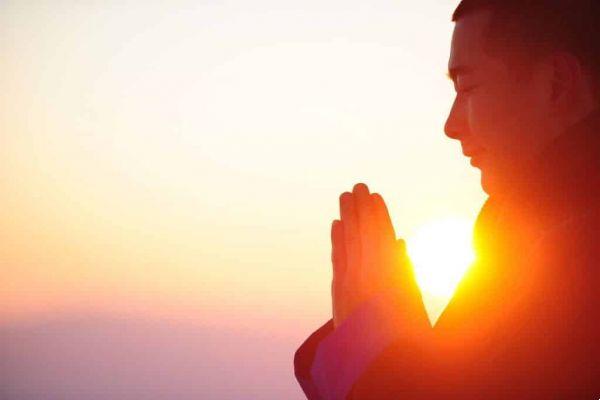
— We are only parts of the present moment, and everything is in constant and uninterrupted change;
— Everything is dual (yin-yang concept), so for everything there is an opposite counterpart. Examples: sadness and happiness, light and shadow, cold and heat, life and death, among many others;
— We must make a continuous effort not to act in a way guided by our desires, because acting on the basis of an impulse that comes from passions and desires distorts the nature and spontaneous happening of things.
Quotes from Lao Tzu
In addition to writing the “Tao Te Ching”, Lao Tzu left many other sources of written wisdom. To end this article about him, we have separated some of his phrases about love, kindness, honesty and the meaning of life. Check out:
1. “Being deeply loved by someone gives us strength; loving someone deeply gives us courage.”
2. “Life is a series of natural and spontaneous changes. Don't resist them - it only breeds sadness. Let reality be reality. Let things flow naturally the way they go.”
3. “Whoever knows his ignorance reveals the deepest wisdom. Whoever ignores his ignorance lives in the deepest illusion.”

4. “He who does not trust others cannot gain their trust.”
5. “Treat those who are good with kindness and also treat those who are not good with kindness. Thus, the good is achieved. Be honest with those who are honest and be honest with those who aren't. Thus, honesty is achieved.”
6. “To gain knowledge, add things every day. To gain wisdom, eliminate things every day.”
- Get inspired by the quest for harmony in Taoism
- Delve into the concept of yin-yang
- Recognize the path to happiness
7. “Knowing others is intelligence, knowing yourself is true wisdom. Controlling others is strength, controlling yourself is true power.”
8. “Repay evil with good, because love is victorious in attack and invulnerable in defense.”
9. “The sage does not show himself, and see how he is noticed. Renounce yourself and you will never be forgotten.”
10. “Freedom from desire leads to inner peace.”
Considered one of the greatest sages in the history of the East, Lao Tzu was so influential that, even without intending to, he ended up founding a religion based on his ideas. Knowing the most diverse religions (and their founders) is essential for us to understand that the world goes far beyond our beliefs. So, are you going to incorporate some Lao Tzu teaching into your life?



